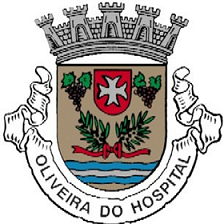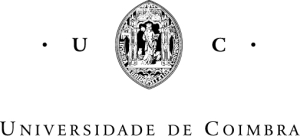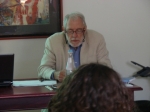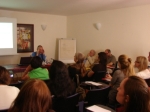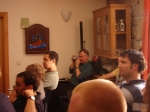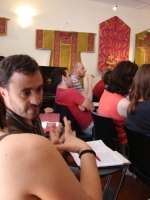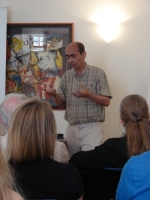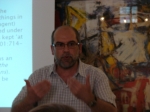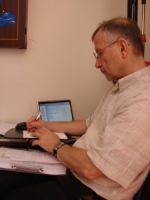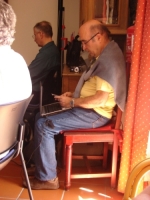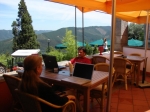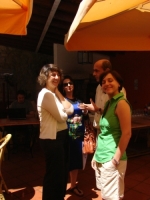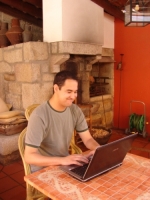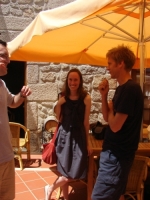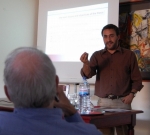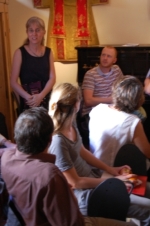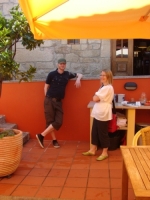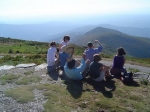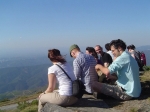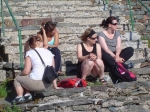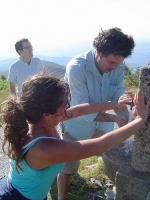Warren J. Samuels
WHAT IS THE MOST FUNDAMENTAL QUESTION OF ECONOMICS AND OF LAW?
Daniel W. Bromley
The foundations of the economy: the institutionalist and feminist perspectives
Bromley, D. (2006) 'Understanding institutions' in Sufficient Reason: Volitional Pragmatism and the Meaning of Economic Institutions, 31-42.
Bromley, D. (2006) 'The content of institutions’ in Sufficient Reason: Volitional Pragmatism and the Meaning of Economic Institutions', 43-66.
Property and property regimes
Bromley, D. (2004) 'Property rights: Locke, Kant, Peirce and the logic of volitional pragmatism' in Private Property in the 21st Century, 19-30.
Public Policy
Bromley, D. (2008) 'Beyond Market Failure: Volitional Pragmatism as a new Theory of Public Policy' in Economia Política / a.XXV, nº2, Agosto 2008.
Bromley, D. (2008) 'Volitional Pragmatism' in Ecological Economics, nº68, 1-13.
José C. Caldas
The foundations of the economy: the institutionalist and feminist perspectives
Hirschman, Albert O. (1984) 'Against Parsimony: Three Easy Ways of Complicating Some Categories of Economic Discourse' in The American Economic Review, nº2, 89-96.
Anderson, Elizabeth (1990) 'The Ethical Limitations of the Market' in Economics and Philosophy, 179-205.
Julie A. Nelson
Nelson, Julie A. (1995), 'Feminism and Economics' in Journal of Economic Perspectives 9(2), pp. 131-148.
Nelson, Julie A. (2003), 'Confronting the Science/Value Split: Notes on Feminist Economics, Institutionalism, Pragmatism and Process Thought.' in Cambridge Journal of Economics 27(1), pp. 49-64.
Nelson, Julie A. (2007), 'Economics for Humans: Conscience, Care and Commerce?' in Challenge: The Magazine of Economic Affairs 50(4), pp. 17-25.
Nelson, Julie A. (2004), 'A Buddhist and Feminist Analysis of Ethics and Business' in Development 47(3), pp. 53-60. Issue on "Corporate Responsibility and Development."
Nelson, Julie A. (2008), 'Economists, Value Judgments, and Climate Change: A View from Feminist Economics' in Ecological Economics 65(3), pp. 441-447.
Vítor Neves
The foundations of the economy: the institutionalist and feminist perspectives
Berger, Sebastian; Elsner, Wolfram (2007), “European Contributions to Evolutionary Institutional Economics: The Cases of ‘Cumulative Circular Causation’ (CCC) and ‘Open Systems Approach’ (OSA). Some Methodological and Policy Implications” in Journal of Economic Issues, 41(2), 529-537.
Chick, Victoria; Dow, Sheila (2005), “The meaning of open systems” in Journal of Economic Methodology, 12(3), 1–19.
Colander, David (2003), “Are Institutionalists an Endangered Species?” in Journal of Economic Issues, 37(1), 111-122.
Kapp, K. W. (1968), “In Defense of Institutional Economics” in Swedish Journal of Economics, 70(1), 1-18 (reprinted in Samuels, Warren (1988), Institutional Economics I, Edward Elgar, 92-107)
Loasby, Brian (2003), “Closed models and open systems” in Journal of Economic Methodology, 10(3), 285–306.
John O’Neill
The Markets and their limits
http://www.bbc.co.uk/programmes/b00729d9
Basic Reading:
O'Neill, J. Markets, Deliberation and Environmental Value chs.1 and 2
O’Neill, J. Holland, A. and Light, A. Values and the Environment chs.2-5
O'Neill, J. Ecology, Policy and Politics chs. 3-5
Further reading:
Pearce, D. et. al. Blueprint for a Green Economy
Arrow et. al. Report of the NOAA Panel on Contingent Valuation http://www.darrp.noaa.gov/library/pdf/cvblue.pdf
Sagoff, M. (1988) The Economy of the Earth chs. 2-4
Vatn A. and Bromley, D. 'Choices Without Prices Without Apologies' in Bromley A Handbook of
Environmental Economics
Foster, J. (ed) Valuing Nature?
O’Neill, J. and Spash, C. ‘Conceptions of Value in Environmental Decision-Making’ Environmental Values 9, 2000
Stern, N. The Economics of Climate Change chapter 2
http://www.hm-treasury.gov.uk/independent_reviews/
stern_review_economics_climate_change/stern_review_report.cfm
Broome, J. ‘Valuing Policies in Response to Climate Change’
http://www.hm-treasury.gov.uk/media/5/0/
stern_review_supporting_technical_material_john_broome_261006.pdf
Well-being and sustainability
Basic reading:
O’Neill, J. ‘Living Well Within Limits: Well-Being, Time and Sustainability’ (Thinkpiece for the Sustainable Development Commission, 2008) available at:
http://www.sd-commission.org.uk/publications/downloads/John_ONeil_thinkpiecel.pdf
O'Neill, J. The Market: Ethics, Knowledge and Politics chs. 3 and 4
O’Neill, J. ‘Citizenship, Well-Being and Sustainability: Epicurus or Aristotle?’ Analyse & Kritik 28, 2006, pp.158-172
Further reading
Robeyns, I. and van der Veen R.J. Sustainable quality of life: Conceptual analysis for a policy-relevant empirical specification Netherlands Environmental Assessment Agency available at:
http://www.rivm.nl/bibliotheek/rapporten/550031006.pdf
Frey, B. Happiness: A Revolution in Economics
Kahneman, D., Wakker, P., Sarin, R. 1997 ‘Back to Bentham? Explorations of Experienced Utility’ The Quarterly Journal of Economics, 112, pp. 375-405
Kahneman, D. and Sugden, R. 2005 ‘Experienced Utility as a Standard of Policy Evaluation’ Environmental & Resource Economics 32 pp.161–181
Layard, R. Happiness: Lessons from a new Science
Nozick, R. ‘The Experience Machine’, Anarchy, State and Utopia pp.42-5
O’Neill, J. ‘Happiness and the Good Life’ Environmental Values 17, 2008, pp.125-144
Sen, A. Development as Freedom ch. 3
Nussbaum, M. Women and Human Development Introduction and ch. 1
José Reis
What have we learnt from institutional economics about markets and the state?
Hodgson, Geoffrey M. (2006), 'What Are Institutions?' in Journal of Economic Issues Vol XL, nº1.
Chang, Ha-Joon (2002), 'Breaking the mould: as institutionalist political economy alternative to the neo-liberal theory of the market and the state', in Cambridge Journal of Economics, 26, 539-559
Tiago Santos Pereira
Scientific knowledge, property rights and the public good
Arrow, K. (1962) ‘Economic Welfare and the Allocation of Resources to Invention’, in Nelson, R. (Ed,), The Rate and Direction of Inventive Activity, Princeton Un. Press for the National Bureau of Economic Research, Princeton
Atkinson, R. et al. (2003), ‘Public Sector Collaboration for Agricultural IP Management’, Science, 301(11 July): 174-5.
Berman, E.P. (2008), ‘Why Did Universities Start Patenting?: Institution-building and the Road to the Bayh-Dole Act’, Social Studies of Science, 38: 835-871.
Callon, M. (1994), ‘Is Science a Public Good?’, Science, Technology & Human Values, 19(4): 395-424.
Mowery, D., Nelson, R., Sampat, B., and Ziedonis, A. (2001), ‘The growth of patenting and licensing by U.S. universities: an assessment of the effects of the Bayh–Dole act of 1980’, Research Policy, 30: 99-119.
Nelson, R. (2004), ‘The market economy, and the scientific commons’, Research Policy, 33:455-471.






